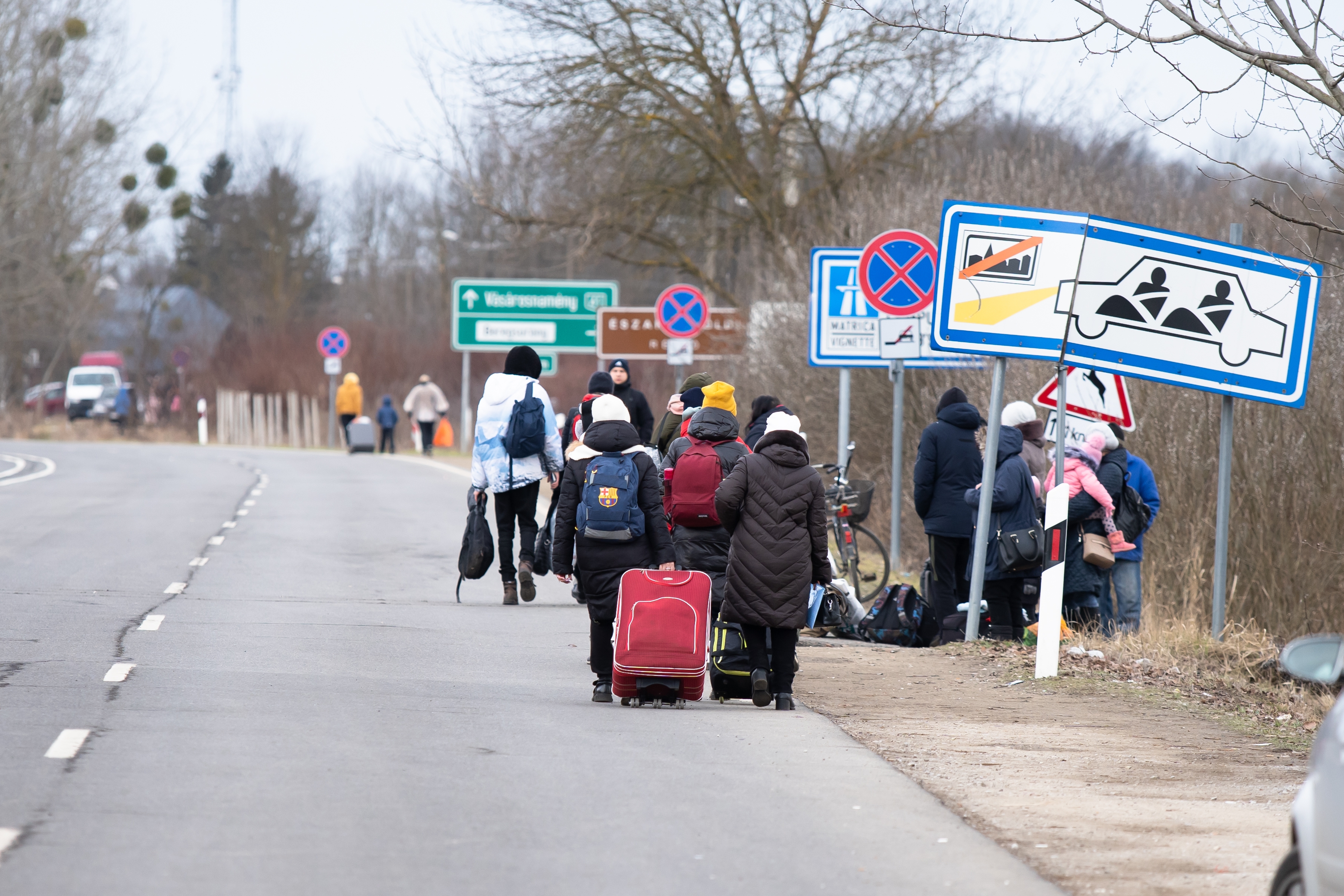Ukrainian prosecutors investigating possible Russian war crimes say they have found 410 bodies in the towns surrounding Kyiv. Meanwhile, Moscow continues to deny the military is killing civilians. But as Russian troops pull back from those areas, they are scorching the earth behind them. Correspondent Ali Rogin reports, and Simon Ostrovsky joins Geoff Bennett with more from on the ground in Ukraine.

As a nonprofit journalism organization, we depend on your support to fund coverage of global conflicts. Help us continue funding the hard costs of in-depth coverage of the Ukraine invasion—including travel, hostile environment safety training, and the increased security expenses that arise from reporting in war zones.
Read the Full Transcript
Geoff Bennett: Ukrainian prosecutors investigating possible Russian war crimes say they found 410 bodies in the town surrounding Kyiv. Meantime, Moscow continues to deny its military is targeting civilians, but as Russian troops pull back from those areas, correspondent Ali Rogin reports, they are scorching the earth behind them. A warning: Some of the images in the story are disturbing.
Ali Rogin: In the wake of Russia's withdrawal from the Kyiv suburbs, a trail of death. In the town of Bucha, hundreds of bodies lay in mass graves and on the roads. What Ukrainian officials say is evidence of war crimes. Margaret Brennan, CBS News moderator: Is this genocide?
Ali Rogin: This morning Ukrainian President Volodymyr Zelenskyy was explicit.
Volodymyr Zelenskyy, Ukrainian President (through translator): Indeed, this is genocide.
Ali Rogin: But Secretary of State Antony Blinken would not go as far.
Dana Bash, CNN Host: Do you see this as genocide?
Antony Blinken, Secretary of State: Look, we will look hard and document everything that we see. Put it all together.
Ali Rogin: As they returned to towns deserted but destroyed by Russia, Ukrainian forces received a warm welcome.
Woman (through translator): We prayed we asked God to give our warriors our defenders health and God's protection.
Ali Rogin: Ukrainian and Western officials say Russia is shifting its forces and focus from the north and capital region to the south and east.
Volodymyr Zelenskyy (through translator): We think this is the redeployment in our opinion they're changing the tactics now.
Ali Rogin: In the port city of Odessa today, residents woke up to a Russian attack on an oil facility.
Vika, Odesa Resident: This is not a good morning for Odessa. We woke up to powerful explosions near our home. The impact was huge. It was terrifying.
Ali Rogin: Further along the coast, the city of Mariupol remains under siege. On Sunday, the Red Cross tried for the third day in a row to bring aid in and get civilians out. But the Russians have not honored their pledge to allow safe passage. For "PBS News Weekend," I'm Ali Rogin.
Geoff Bennett: For more on the devastating situation in Bucha, I'm joined by special correspondent Simon Ostrovsky, who was there earlier today. Simon, give us a sense of what you've seen today.
Simon Ostrovsky: Well, the devastation in Bucha is really difficult to describe. It's so total the Russian troops pulled out just a few days ago, and what they left behind has really exposed the horrors that are the civilians living in Bucha in the area surrounding Kyiv live through during the Russian occupation that lasted more than a month. What we saw were civilians' bodies littering the roads, some of them killed with shrapnel or from explosions. But disturbingly, many of the people that we saw, who had just been left out in the streets to rot had actually seemingly been executed because they had gunshot wounds to the head. We witnessed a scene of a group of volunteers behind a building, clearing a number of bodies, eight or nine bodies of men who had all seemingly been executed. Several of them had their hands tied behind their backs. And they were discarded behind this building with other ways that the Russian troops left behind, like MRE packets, food ration packets that came from Russia. And so we spoke with the head of a funeral service in Bucha, who told us that over the last several days, they've actually collected and found around 300 civilians so far, who were killed and they're finding 30 or 40 every day and I think that the death toll is just going to continue to grow as the Ukrainian forces continue to move north into the areas that the Russians have retreated from.
Geoff Bennett: It's a horrifying account. Special correspondent Simon Ostrovsky, appreciate you joining us.
Simon Ostrovsky: Thanks for having me.
Geoff Bennett: And a note our coverage of Ukraine is supported in part by the Pulitzer Center.














